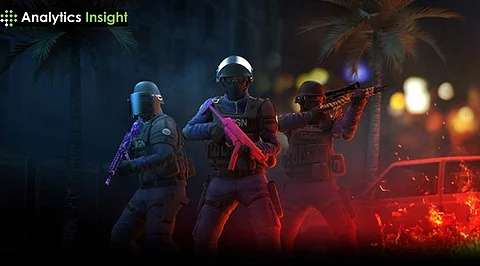

Gaming has evolved into a vast landscape, offering diverse experiences that cater to different player preferences. Two prominent genres, First-Person Shooter (FPS) and Role-Playing Game (RPG), stand out as pillars in the gaming realm. While each has its unique appeal, the battle between FPS and RPG enthusiasts often sparks heated debates about which gaming experience reigns supreme.
First-Person Shooters (FPS) are the adrenaline-fueled juggernauts of the gaming world. These games thrust players into the heart of the action, providing a visceral and immediate experience. Titles like “Call of Duty,” “Counter-Strike,” and “Overwatch” epitomize the genre’s emphasis on precision, reflexes, and intense firefights.
FPS games are known for their fast-paced and dynamic gameplay. Players must think on their feet, making split-second decisions that can determine victory or defeat. The rapid pace creates an exhilarating experience, keeping players constantly engaged and on the edge of their seats.
The multiplayer aspect is a hallmark of FPS games, fostering intense competition among players worldwide. Whether engaging in team-based battles or free-for-all shootouts, the thrill of outgunning opponents adds a layer of excitement that keeps gamers returning for more.
FPS titles demand precision and sharp reflexes. Mastering the art of aiming, quick-scoping, and precise movements is essential for success. The constant pursuit of improving one’s skills adds a competitive and rewarding dimension to the gaming experience.
Modern FPS games leverage cutting-edge graphics and realistic environments to create immersive experiences. The realism adds to the intensity, making players feel like they are part of the action-packed scenarios unfolding on the screen.
Role-Playing Games (RPG) stand in stark contrast, offering a slower, narrative-driven experience that focuses on character development and storytelling. Games like “The Elder Scrolls” series, “Final Fantasy,” and “The Witcher 3” showcase the RPG genre’s dedication to rich narratives and expansive worlds.
RPGs are renowned for their intricate and captivating storylines. Players embark on epic quests, make impactful decisions, and witness the consequences of their choices. The emphasis on narrative depth creates an emotional connection, turning gaming sessions into immersive storytelling experiences.
In RPGs, players often assume the role of a customizable character whose journey evolves based on decisions made throughout the game. The character development aspect allows players to shape their in-game persona, influencing the narrative and overall experience.
RPGs are synonymous with vast and open-world environments. Players can explore sprawling landscapes, discover hidden treasures, and engage in side quests that add layers of complexity to the overall narrative. The freedom to roam fosters a sense of discovery and adventure.
While not as frenetic as FPS gameplay, RPG combat is strategic and methodical. Players often engage in turn-based battles, allowing them to plan and execute strategic maneuvers. The emphasis on tactics adds depth to the gaming experience.
The choice between FPS and RPG often boils down to individual preferences and the type of gaming experience one seeks. FPS games cater to those who crave fast-paced action, competitive multiplayer, and the thrill of precise combat. On the other hand, RPG enthusiasts are drawn to the immersive narratives, character-driven journeys, and the freedom to explore expansive virtual worlds.
In recent years, gaming has witnessed a convergence of genres, giving rise to hybrid experiences that borrow elements from both FPS and RPG realms. Games like “Destiny” and “Borderlands” seamlessly blend intense shooting mechanics with character progression and narrative depth. This merging of genres signifies a broader trend in the gaming industry – an acknowledgment that players crave diverse experiences that transcend traditional genre boundaries.
Ultimately, the FPS vs. RPG debate is a testament to the diversity and richness of the gaming landscape. Rather than pitting one against the other, gamers can appreciate the unique qualities each genre brings to the table. Whether unleashing a barrage of bullets in a high-stakes firefight or immersing oneself in an epic narrative, the shared passion for gaming unites players across diverse virtual realms. In this expansive universe, the only competition that truly matters is the one between players and the next thrilling gaming experience that awaits.
